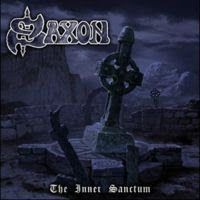“The Last Ditch Redemption” is a concept piece about a violent criminal seeking atonement for his guilt, envisioned through a cycle of songs linked by ambient segues. First song "Dig" is a fast-paced stripped-back and raw groove metal tracks that makes interesting use of a chainsaw. "This Monster My Son", a mother's letter to her evil offspring, has a definite melodic metalcore aspect. This links by way of an extended interlude of twisted voices and dark soundscapes to the rocking groove of "The Other Side of Hell". The pounding, repetitive riff of the title track rounds the musical side of things out before the final ambient piece leads one to doubt if the redemption sought by the EP's protagonist actually comes to pass. Frankenbok don't do anything overly technical or flashy here at all, just some simple metal songs that very clearly mark the journey to absolution in a strikingly effective manner.
Made up mainly of ambience and soundbytes, the segues help the story along and definitely add an extra dimension to the release, but when their combined playing time is longer than that of the actual songs it could be argued that they’ve overdoing it a little. Even so, Frankenbok has come a long way from the band that knocked off a Madison Avenue cover just for laughs and, as usual, it will interesting to see what they do next.
- "As I dug myself deeper into trouble, the darkness swallowed me whole"
- Dig
- "I crossed the line. And was exiled. Rejected. Alone"
- This Monster My Son
- "The walls closed in, and the voices in my head were telling me I'm guilty. Guilty. Guilty"
- The Other Side of Hell
- "All those bridges that I burnt lit the way home"
- The Last Ditch Redemption
- "I have a second chance and I'm not gonna blow it. I hope"
Rating: 78%

























